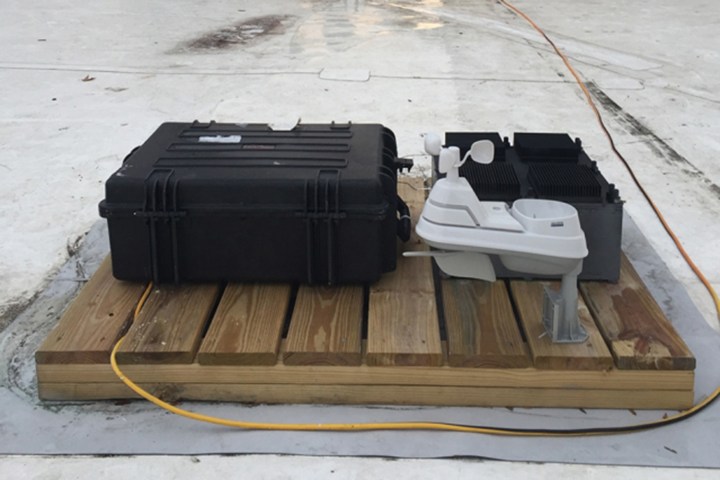In the search for sustainable energy solutions, no idea is too big or too small to consider. In the past couple of years, we’ve seen genetically engineered algae serve as biofuel, cellphones harness energy from radio waves, and even toilets that convert urine into electricity.
Engineers from the Massachusetts Institute of Technology (MIT) have now developed a small device that captures energy from changing air temperatures. Called a thermal resonator, the device exploits the temperature fluctuations that occur throughout the day-night cycle. This offers promise as a longterm power source for remote operating systems, according to the researchers, who recently published a paper in the journal Nature Communications.
“Ambient temperature fluctuations are a ubiquitous and mostly untapped energy resource,” Anton Cottrill, an MIT graduate student and first author of the study, told Digital Trends. “They surround us everyday in a variety of contexts, and a great example that we are all very familiar with is the diurnal cycle, day and night temperature changes. We have demonstrated an optimized device, a thermal resonator, that is designed specifically to lock into a particular temperature fluctuation frequency … and translate the fluctuations into electricity.”
Unlike solar panels, the thermal resonator doesn’t require direct sunlight, meaning it can function in the shade. And unlike turbines, the device is mostly unaffected by unpredictable wind conditions. It doesn’t yet generate a huge amount of energy, but there is enough to provide continuous power to remote sensing sensing instruments out in the field. The device may also be used to support more established green energy solutions — for example, by drawing waste heat away from solar panels.
The device works by taking advantage of something called “thermal effusivity,” or a material’s ability to extract heat from its surroundings.
“The thermal resonator is enabled by high thermal effusivity materials,” Cottrill said, “[which are] materials that transfer heat with their environment very effectively. High thermal effusivity materials are characterized by high thermal conductivity and a high heat storage capability.”
Cottrill and his colleagues created such a material by coating a metal foam with a layer of graphene, which increases its thermal conductivity. This was then infused with a phase-change material, which changes between a solid and liquid state.
The engineers see a handful of real world applications for their thermal resonator, particularly as power support systems for sensing devices set up in hard-to-reach places.
“A great example is a wireless sensor node network, which is desired to operate perpetually and autonomously for extended periods and often in remote locations,” Cottrill said. “For these networks, batteries are currently highly relied upon, but eventually they will need to be replaced or recharged.” Since battery replacement is often impractical, Cottrill said the thermal resonator could offer an alternative.



